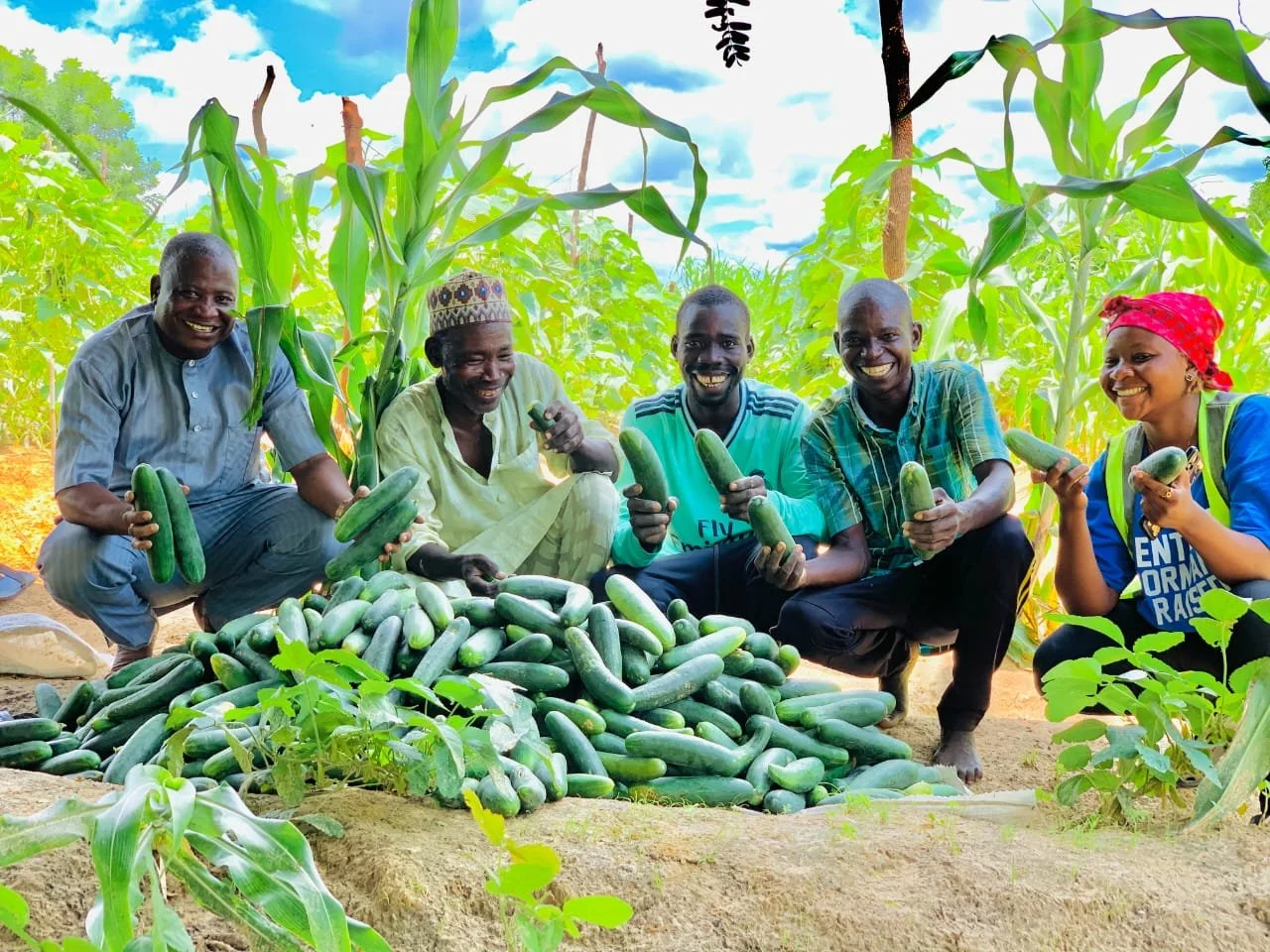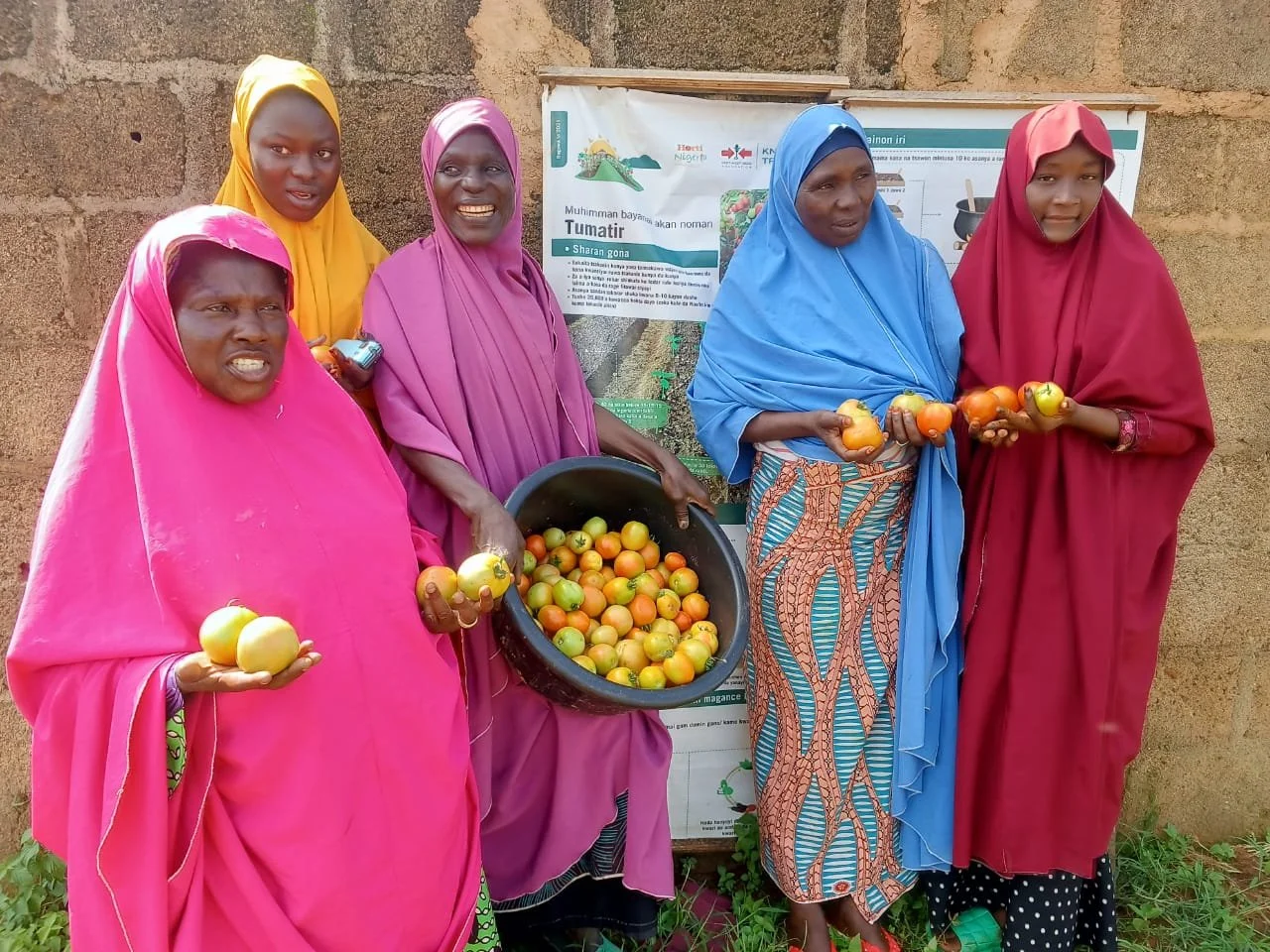A tangible, long-lasting impact on people’s lives at low cost with simple interventions contribute to healthier foods for households
Rutger Groot is co-founder of East-West Seed Knowledge Transfer Foundation (EWS-KT). SeedNL had the pleasure of speaking with him about EWS-KT and his experiences of different projects, including HortiNigeria.
Can you tell me more about East-West Seed Knowledge Transfer Foundation (EWS-KT)?
EWS-KT is a non-profit corporate foundation with unique ties to East-West Seed. East-West Seed is a family-owned vegetable seed company that has been in business for 40 years now, selling seeds in 60 countries with tropical climates, headquartered in Thailand. Its mission is to improve the lives of smallholder vegetable farmers who have little or no access to farmer inputs.
To offer more support at a bigger scale to smallholder farmers, East-West Seed established Technology Transfer department over two decades ago, presently known as Knowledge Transfer Foundation, to focus only on knowledge and skills sharing, offering training on sustainable vegetable production practices. Our capacity-building initiatives have led to more than 600,000 farmers having improved yields, better incomes, and as a result we also see greater environmental sustainability in the markets we operate.
A large part of the profit the company makes is invested back into the mission through Knowledge Transfer Foundation. It is used to train farmers on good agricultural practices and skills.
After harvesting cucumbers
What is the impact of your work?
At EWS-KT, we see the effects of capacity building daily. For instance, I was in Northern Nigeria a few months ago to visit a smallholder farmer who is growing tomatoes on 2 hectares of land, to provide for his family. We noticed that smallholder farmers in the area we work in use seeds that they have harvested themselves. The seeds often come from rotten tomatoes that cannot be sold, and the seeds are then extracted for the next production cycle. You can imagine that, when using this strategy, the harvests of the following production cycles are poor in terms of yield and quality. We support in creating impact with our work, by training the farmer on seed quality, he noticed increased shelf life going from two days to two weeks.
Besides using poor-quality seeds, the smallholder farmers we work with have poor sowing techniques: they throw them over the fields and three quarters of them fail to germinate. Our strategy was to train farmers on seed quality and how to use the seeds optimally by adopting the right inputs and techniques.
In that sense, East-West Seed Foundation is focussing on developing a strong ecosystem: developing a market for farmers and input dealers, vegetable traders and fertiliser dealers, to bolster market development.
Can you tell me more about the HortiNigeria project and the activities of EWS-KT in this project?
Well, Nigeria faces a challenge meeting local vegetable demand due to a 13 million metric ton gap in crops like tomatoes, onions, and okra.
Addressing this, the HortiNigeria project was set up to transform the horticulture sector, aiding food security. We started with an inception phase in 2019 and the project implementation started in November 2021. For the inception phase, our objective was to train smallholder farmers in sustainable and profitable vegetable production practices, which we achieved.
The four-year project aims to facilitate the development of a sustainable and inclusive horticulture sector that contributes to food and nutrition security in Nigeria. Our project partners are the Royal Tropical Institute (KIT), IFDC and Wageningen University.
So far, we’ve trained over 20,850 smallholder farmers and work with 105 agro dealers. Our agro-dealers have provided advice to over 14,150 farmers. A radio programme has been set up, a learning site has been established for youth and professionals, and women-owned home gardens have been piloted. And we’ve set up a learning site at Sa’adatu Rimi College, where youth and women are trained. Partners include the Royal Tropical Institute (KIT), IFDC and Wageningen University.
What is the specific role and added value of Dutch partners in your project?
The HortiNigeria team has a broad range of competencies. For example, Wageningen University has lots of knowledge about chemicals and techniques and has an advisory role in the project. KIT is our evaluation partner and monitors all the activities. East-West Seed Knowledge Transfer Foundation is on the implementation side of the project activities.
We observed that there are over 70.8 million hectares of agricultural land in Nigeria, only half of which is being used. We try to encourage those people who have left the city to go back to their villages with the idea of becoming agricultural entrepreneurs. By providing them training on good agricultural practices, it helps them benefit from better yields and thus higher incomes. Around 75% of our trainees are below the age of 35. We have been selling local crop seeds, which is very important in the Nigerian context. We collect seeds using positive mass selection, and from those we produce seeds that have a consistent quality. These can be used by farmers and have a germination of 75%. We are helping farmers to take smart steps.
Besides Nigeria, where else have you been transferring ‘knowledge’?
Besides HortiNigeria, we have been delivering trainings in 12 countries. We work with local teams focussing on the technical aspects of the work, typically farmers with agricultural skills, who are keen to deliver training and to encourage and empower others to adopt good agricultural practices. Our technical colleagues all have skills in delivering training and technical know-how and share what they have learned from our knowledge transfer. After completing their training, they go into the field and offer intensive trainings to local farmers, sometimes supporting up to 2,000 farmers a week.
Our trainers compare old techniques with new techniques so that farmers can see the differences. The average farmer is quickly convinced of the benefits of higher-quality seeds and then is willing to buy them. We also work with NGOs who organise “farmer field days” where hundreds of farmers are invited to observe the differences between the old-fashioned way of producing and our proposed production method.
Some time ago, our team delivered training in Northeast India. We provided training to a key farmer, who then trained others, and now the whole village is applying the same techniques. However, what makes this story special is that we travelled to a very remote farm that we had never visited before. On this farm, the farmer was applying the same techniques that we had been teaching. When we asked him how he introduced this new method, he explained that he passed by one of our trained farmers and took a leaflet home; this leaflet showed the farmer the exact steps he needed to take, and so he did. We were pleasantly surprised by his farm. This is just one of the many cases in which farmers motivate others to follow our proposed method.
What has been your biggest success so far with EWS-KT in Nigeria?
We celebrate many successes with our activities worldwide, our biggest success so far has been in West Nile Northern Uganda where there are 1m refugees with not enough to eat due to increased food rations. So EWS-KT decided to support these refugees by teaching basic vegetable farming techniques to increase self-sufficiency, which has been a huge success with many families adopting these techniques and growing their own vegetables. Soon, the project would have led to 10,000 people being trained. The project also includes a Training of Trainers component.
In the Nigerian context particularly, we observed that the trainings we offer have a very high level of replication: the ripple effect is our biggest success. Besides this, Nigerians are entrepreneurs and are keen to undertake action and build something. Last year, I was with a Nigerian man who produced tomatoes in the traditional way. After explaining our method, he was unsure how to manage a nursery and the inputs were too expensive. Together, we came up with an alternative: to use mango leaves as trays for seeds. His wife started doing that and when we came back one year later, she had built herself a commercial nursery from which she could make a living.
How does the project contribute to SDG 5: gender equality?
There are a lot of women who have market gardens. So, despite being in a male-dominated context, we can reach women farmers as well. We employ many female trainers which helps to reach more women farmers; we don’t take the women to a central training centre but rather we go to them. We try to put ourselves in their position to ensure that they are reached and can benefit from our demonstrations and training, as often there are cultural and social barriers that stop them from doing this kind of work.
A group of women showcasing their harvested tomatoes after applying the proposed production method
What would you have done differently in retrospect if you could start all over again?
I am not sure about wanting to have done something differently, but in general, we would always like to be able to target even more smallholder farmers. This is only possible by finding the right partners and working together to make this happen.
What advice would you give to other seed sector project implementers?
Be aware of the environment you work in and be willing to take risks without expecting high return to begin with. It takes time to adopt new practices. You may not get results quickly and you’re going to be working a long time before you succeed. Besides this, join forces with local partners but also give partners a share of the profits.
For you personally, why do you enjoy working in the seed sector?
East-West Seed was created 21 years ago with the idea of offering small-scale farmers in Asia better-quality seeds and ultimately a better life. We started developing better seeds but realised that the farmers did not know how to use them. Our local sales promoters didn’t have much impact on this. We then decided that our mission is to improve small farmers, so we had to upscale. We needed to partner with other parties and that is how East-West Seed came about. When setting up the Foundation, our goal was to create partnerships, so we started working with our competitors. In the long run, it was the best way to scale up and to extend our interventions. Our objective now is to reach 1 million farmers within the next two years.
Getting to know our seeds and methods can be life changing for smallholder farmers. This is why we increasingly work with different communication tools, including weekly radio broadcasts in which we offer training advice.
Getting to know our seeds and methods can be life changing for smallholder farmers. This is why we increasingly work with different communication tools, including weekly radio broadcasts in which we offer training advice.
I’m passionate about our approach, because we can have a tangible, long-lasting impact on people’s lives at low cost and our simple interventions contribute to healthier foods for households, which improves incomes and helps pay for farmers’ children to go to school.



